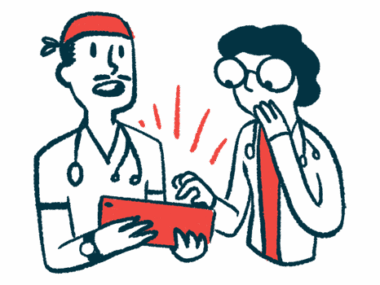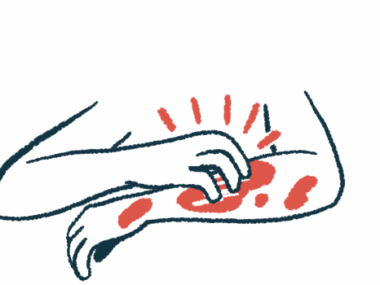Some AHP patients could receive Givlaari through BC PharmaCare
Program helps British Columbia residents pay for some drugs, medical care
Written by |

Certain people with acute hepatic porphyria (AHP) living in British Columbia may now get full coverage of Givlaari (givosiran) through BC PharmaCare.
BC PharmaCare is a publicly funded program in British Columbia that helps residents of the Canadian province pay for certain prescription drugs and some other types of medical care. The program provides assistance to families based on income: families who earn less are eligible for more assistance.
BC PharmaCare announced in a press release that it would now be providing coverage for Givlaari as well as two therapies for other rare diseases.
Alnylam Pharmaceuticals’ Givlaari has been covered since June 22 under the Expensive Drugs for Rare Diseases (EDRD) process. EDRDs are therapies for rare diseases that have a very high cost per patient, and Givlaari, whose dosage is weight-based, is estimated to have an annual cost of $773,000 for a patient with an average weight of 67 kg (about 147.7 lbs).
To be eligible for coverage, AHP patients residing in British Columbia must be registered with Medical Services Plan and Fair PharmaCare, and have no other means of funding, such as third-party plans and other coverage.
Their physician should submit a request for coverage on behalf of the patient, and if approved, Givlaari will be funded at 100% coverage, with no copay or patient deductible.
The coverage of Givlaari is expected to help up to 10 people with AHP in British Columbia in the first year of implementation, according to BC PharmaCare.
Givlaari blocks activity of certain enzymes, preventing disease attacks
AHP is a type of porphyria caused by the toxic buildup of aminolevulinic acid (ALA) and porphobilinogen (PBG), two intermediary products made during the production of heme, a molecule required for oxygen transport in the body.
Givlaari is designed to block the activity of ALAS1, an enzyme that is overactive in AHP and helps increase levels of intermediary molecules like ALA and PBG. By blocking the enzyme’s activity, the therapy is expected to help reduce the toxic buildup of these intermediates, thereby acting to prevent disease attacks and other AHP manifestations.
Givlaari is administered once per month via a subcutaneous (under-the-skin) injection that should be performed by a healthcare professional.
Health Canada approved Givlaari to treat adults with AHP in late 2020, and the following year the Canadian Agency for Drugs and Technology in Health recommended that it should be reimbursed by public healthcare plans in Canada, but only if the therapy’s cost was reduced substantially.
The therapy also has been approved for adult AHP patients in the U.S. and patients 12 and older in Europe.






